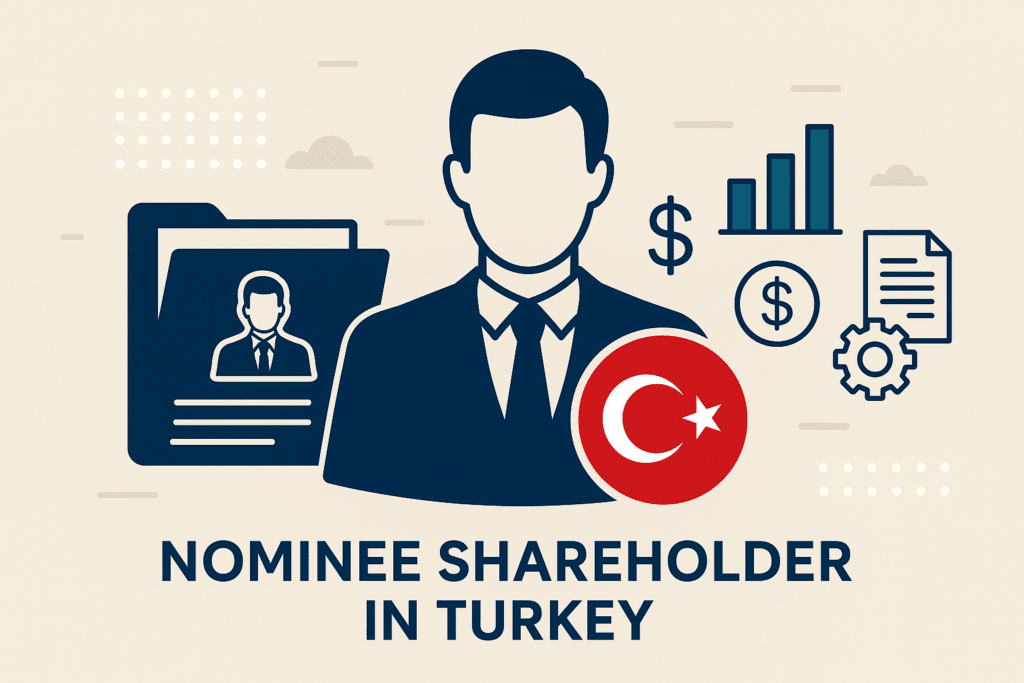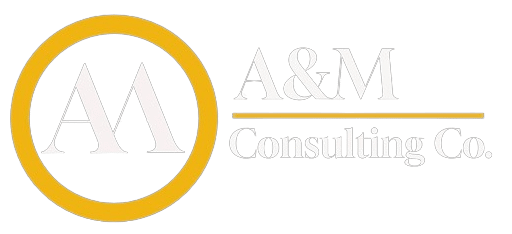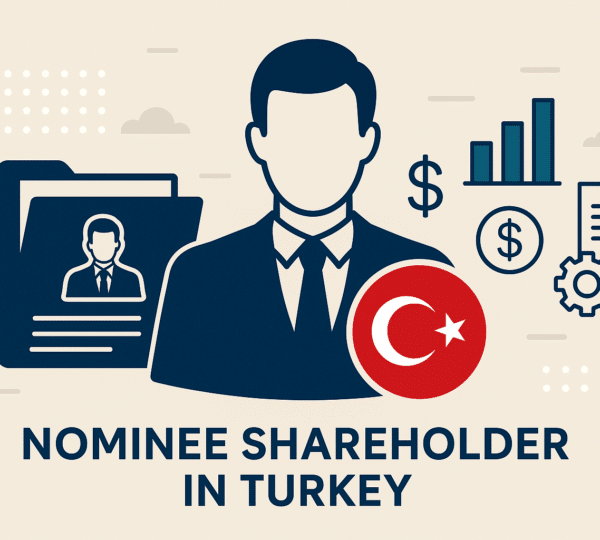
Nominee Shareholder in Turkey
Nominee Shareholder Services in Turkey for business
If you’re considering doing business in Turkey as a foreign investor, you may come across the term “nominee shareholder”. While Turkey does not legally mandate foreign investors to have local shareholders, some investors choose to appoint nominee shareholders for privacy, legal structuring, or strategic purposes. In this article, we’ll explore what a nominee shareholder is, how it works in Turkey, and the potential advantages and risks involved.
Table of Contents
What Is a Nominee Shareholder?
A nominee shareholder is an individual or legal entity that holds shares in a company on behalf of the actual (beneficial) owner, often through a formal agreement. The nominee has no real ownership rights or control over the shares and acts merely as a figurehead or representative.

Is a Nominee Shareholder Legal in Turkey?
Yes, nominee shareholder arrangements are not prohibited under Turkish law. However, the concept is not formally regulated, which means these agreements rely heavily on private contracts and must be carefully structured to avoid legal and tax complications.
Most commonly, nominee structures in Turkey are used for:
Ensuring confidentiality of the real owner
Simplifying cross-border ownership structures
Complying with internal corporate governance models
Facilitating certain investment or regulatory requirements
How Does a Nominee Shareholder Work in Turkey?
A typical nominee structure includes:
A Nominee Shareholder Agreement that clearly outlines the relationship
A Declaration of Trust or Power of Attorney, giving the beneficial owner control
Agreements related to dividend distribution, voting rights, and exit mechanisms
In some cases, nominee arrangements may also involve local advisors, lawyers, or corporate service providers to act as the nominee for transparency and compliance.
Who Typically Uses Nominee Shareholder Services in Turkey?
Foreign investors setting up LLCs or Joint Stock Companies
Holding companies establishing subsidiaries in Turkey
High-net-worth individuals seeking discretion in business ownership
Companies entering regulated industries with local presence requirements
Benefits of Using a Nominee Shareholder in Turkey
Using a nominee shareholder in Turkey can offer several advantages, particularly for foreign investors and business owners who value privacy, flexibility, or streamlined management. Here are the key benefits:
1. Privacy & Confidentiality
The real owner’s (beneficial owner) name does not appear in public records (Trade Registry, tax filings, etc.).
Protects high-profile individuals or investors from public scrutiny.
2. Simplified Business Operations
The nominee can handle administrative tasks (e.g., signing documents, attending meetings) if authorized.
Useful for foreign investors who cannot frequently visit Turkey.
3. Faster Company Setup & Transactions
Avoids delays caused by bureaucratic procedures for foreign shareholders.
The nominee (often a local) can quickly execute transactions without needing the beneficial owner’s direct involvement.
4. Asset Protection & Risk Management
Helps shield the beneficial owner from direct legal exposure in certain disputes.
Can be used in estate planning to discreetly transfer ownership.
5. Facilitates Joint Ventures & Investment Structures
Allows silent partners to remain undisclosed in official records.
Useful for venture capital or private equity investments where anonymity is preferred.
6. Avoiding Bureaucratic Hurdles for Foreigners
Some industries may have restrictions on foreign ownership; a nominee can help navigate these.
Simplifies banking processes if the nominee is a trusted local.
Risks and Considerations of Nominee Shareholder
Using a nominee shareholder in Turkey can be beneficial, but it also comes with significant risks and legal considerations. Here’s what you need to know before proceeding:
1. Legal Risks & Ownership Disputes
No Formal Trust Law: Turkey does not fully recognize “trusts,” so nominee agreements rely on contracts, which may not offer full protection.
Nominee Refuses to Transfer Shares: If the nominee acts in bad faith, the real owner may face costly legal battles to prove beneficial ownership.
Court Challenges: Turkish courts may not always enforce nominee agreements, especially if they suspect tax evasion or money laundering.
2. Banking & Financial Complications
UBO Disclosure Requirements: Banks and financial institutions often demand Ultimate Beneficial Owner (UBO) details, reducing anonymity.
Account Freezing or Rejection: Some banks refuse to open accounts for companies with nominee structures due to AML (Anti-Money Laundering) risks.
Difficulty in Loans & Transactions: Nominee-held companies may face extra scrutiny in financial dealings.
3. Tax & Compliance Risks
Tax Liability Remains with the Beneficial Owner: Using a nominee does not transfer tax obligations; the real owner must still declare income.
Potential Double Taxation: If not structured properly, both nominee and beneficial owner could face tax claims.
Audit Risks: The Turkish Revenue Administration may investigate nominee arrangements for tax avoidance.
4. Risk of Fraud & Misuse
Nominee Steals Assets: Since the nominee is the legal owner, they could sell shares, take loans, or dissolve the company without consent.
No Automatic Legal Protection: If the nominee goes bankrupt, creditors could seize the shares.
5. Regulatory & Transparency Issues
Increasing Scrutiny: Turkey is tightening AML and KYC rules, making nominee structures harder to maintain.
Trade Registry Records: While nominees appear in public records, authorities may still trace the real owner.
6. Difficulty in Selling or Transferring Shares
Extra Steps Required: To transfer ownership, the nominee must cooperate, which can delay transactions.
Potential for Blackmail: Unscrupulous nominees might demand payment to release shares.
How to Mitigate Risks of Using a Nominee Shareholder in Turkey
1. Draft a Strong Nominee Agreement
A well-documented contract is crucial to prevent disputes. It should include:
✅ Explicit Declaration of Trust (even though Turkey doesn’t fully recognize trusts, this strengthens your claim).
✅ Clear Terms – Nominee acts only as per your instructions.
✅ Irrevocable Power of Attorney (PoA) – Lets you control company decisions without nominee interference.
✅ Right to Reclaim Shares – You can demand transfer at any time.
✅ Penalties for Breach – Financial consequences if nominee acts against the agreement.
Recommendation: Have the agreement notarized and, if possible, drafted in both Turkish and English for enforceability.
2. Secure Share Certificates & Control Mechanisms
Physical Custody – Keep original share certificates with you or a trusted escrow agent (lawyer/bank).
Bank Mandate Control – Ensure you (not the nominee) have sole signing authority on company accounts.
Corporate Resolutions – Require your approval for major decisions (e.g., selling shares, taking loans).
3. Comply with UBO (Ultimate Beneficial Owner) Reporting
Turkish banks and regulators increasingly demand UBO disclosure.
Solution: Disclose your ownership confidentially where legally required, but limit public exposure.
Workaround: Use a holding company (in a privacy-friendly jurisdiction) as the shareholder instead of an individual nominee.
4. Choose a Reputable Nominee
Avoid random individuals – Use a licensed corporate service provider or law firm.
Background Checks – Verify nominee’s reputation (past disputes, financial stability).
Professional Nominees – Some Turkish consultancies offer insured nominee services (reduces fraud risk).
5. Monitor & Maintain Control
Regular Audits – Check company records to ensure nominee hasn’t made unauthorized changes.
Annual Compliance Reviews – Update agreements as Turkish laws evolve.
Digital Access – Insist on online access to company filings in the Trade Registry.
6. Prepare an Exit Strategy
Pre-Signed Share Transfer Forms – Keep notarized documents to reclaim shares quickly.
Escrow Release Conditions – Define triggers (e.g., contract breach) for automatic share return.
Backup Nominee – Have a substitute nominee in case the primary one becomes uncooperative.
7. Tax & Legal Compliance
Declare Beneficial Ownership where required (prevents tax evasion accusations).
Pay Taxes Properly – Nominee structures do not exempt you from Turkish taxes on dividends or capital gains.
Consult a Turkish Tax Advisor – Ensure compliance with CFC (Controlled Foreign Company) rules if using offshore holdings.
When to Avoid Nominee Shareholders?
❌ If you need bank financing (many Turkish banks reject nominee-held companies).
❌ If the nominee is not 100% trustworthy.
❌ If the goal is tax evasion (high risk of penalties).
Alternatives to Nominees
Holding Company Structure – More secure than individual nominees.
Proxy Directors – Hides management (but not ownership).
Bearer Shares – Rare and risky due to transparency laws.
Contact Us for Nominee Shareholder Services in Turkey
While Turkey does not require foreign investors to have a local shareholder, nominee shareholder services can offer strategic and privacy-related advantages when properly structured. However, it is critical to ensure full legal compliance, clear documentation, and to partner with a reliable service provider to minimize risks.
If you’re interested in setting up a nominee shareholder structure in Turkey, our experienced legal and corporate services team is here to help.
A&M Consulting Co. is an business consultancy firm specialized in Nominee Shareholder Services for especially global investor and foreign companies & indivicual entrepreneurs.
We continue to provide cost-effective professional Nominee Shareholder Services for global companies and individual entrepreneurs who want to enter the Turkey’s market smoothly, quickly, and fully comply with local legislation.
Contact us today to explore tailored solutions for you.
You can reach out to our experienced consultans via email or by filling out the Contact Form on our website’s contact page
DISCOVER OUR SERVICES:
- Company Registration in Turkey
- Bank Account in Turkey
- Accounting & Bookeeping Services
- CFO Services in Turkey
- HR & Payroll Services
- Business Consultancy for Turkey
- Social Security Registration
- Virtual Office & Legal Address in Turkey
- Turkish Citizenship
- Turkey Work Visa
- Turkey Investment Visa
- Turkiye Tech Visa
- Non-Profit Organization in Turkey
- Establishment of Association in Turkey
- Foundation Registration in Turkey
- Company Winding Up in Turkey
FAQs About Nominee Shareholder in Turkey
A nominee shareholder is a person/entity who holds shares on behalf of the real (beneficial) owner, keeping their identity confidential in public records.
Yes, but Turkey does not fully recognize trusts, so protection depends on a private contract (nominee agreement).
Privacy (hide real owner’s identity).
Faster company setup for foreigners.
Simplify management for absentee owners.
Yes, the nominee is listed in the Trade Registry, but the beneficial owner may need to disclose identity to banks/authorities under AML laws.
Risk exists if the agreement is weak. A notarized contract + PoA can prevent unauthorized sales.
Some regulated sectors (banking, defense) require real owner disclosure—nominees may not work.
You’ll need to enforce the nominee agreement in court, which can be slow. Mitigate this with:
Pre-signed transfer forms.
Escrow-held share certificates.
Some banks may reject or freeze accounts if UBO (Ultimate Beneficial Owner) is undisclosed.
A notarized nominee agreement + shareholder declaration serves as evidence.
Draft a nominee agreement (Turkish/English).
Sign share transfer deeds.
Register nominee in the Trade Registry.
Individuals: €500–€1,000/mounth.
Professional services (law firms): €2,500–€5,000/mounth(more secure).
Yes, but Turkish banks may still ask for UBO details of the offshore entity.
The beneficial owner is liable for taxes (dividends, capital gains). Nominees must file but can’t avoid your tax duties.
Only if directly requested (e.g., during an audit). Banks may report UBOs automatically.
No. Tax authorities can pierce nominee structures if used for evasion.
Holding company (in Turkey or abroad).
Proxy directors (hides management but not ownership).
Yes, a PoA lets someone manage the company, but ownership remains public.
Transfer shares back via a signed deed.
Update the Trade Registry.
Shares could be claimed by heirs/creditors. Solution: Use a corporate nominee (not an individual).
No written agreement.
Letting nominee control bank accounts.
Ignoring UBO disclosure rules.



